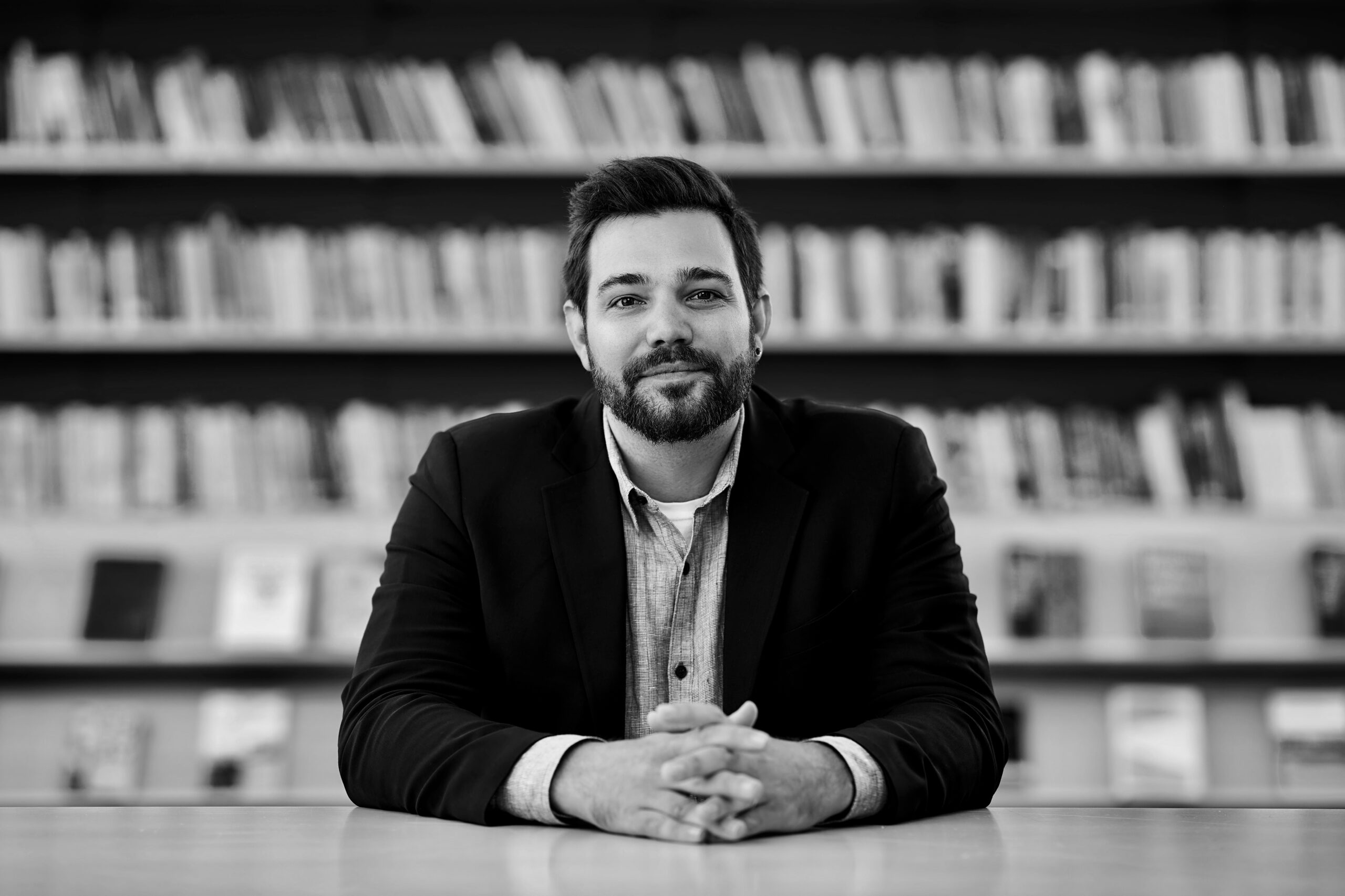Benjamin Weber is an assistant professor of African American and African Studies at the University of California, Davis. He has worked at the Vera Institute of Justice, Alternate ROOTS, the Marcus Garvey and UNIA Papers Project, and as a public high school teacher in East Los Angeles. He makes his home in Davis, California.
Benjamin Weber will be in conversation with Christopher Paul Harris as part of our City Lights LIVE! discussion series on Monday, October 30, 2023, at 6:00pm PST to celebrate the release of his new book American Purgatory: Prison Imperialism and the Rise of Mass Incarceration, published by The New Press. Register here!
Where are you writing to us from?
Davis, California.
What is bringing you joy right now, personally/artistically/habitually?
My two children, Elijah and Tallulah. I deleted social media when Elijah was born four years ago, and replaced email with the spotify app on my phone when Tallulah was born this past year as a reminder to listen to more music, sing more, and do more silly and embarrassing things like dad dances. A mentor told me that having kids completely changes your relationship with time, and I’m finding this to be so magical.
Which writers, artists, and others influence your work in general, and this book, specifically?
Wow. Too many to list, but I am most influenced by the Black radical tradition of scholarship characterized by the likes of CLR James, Claudia Jones, Richard Wright and others. In particular, the work of the late great Clyde Woods sent me on a decade-long journey in search of root causes to the crisis of our overuse of incarceration at rates unprecedented in world history. I’m most inspired by the activists who have internationalized the long freedom struggle in this country, who have gone beyond the typical terms of domestic politics to find an anticolonial analysis and decolonial framework for addressing the most pressing challenges of our times. I’m continually struck by the stunning work of New Orleans visual artist Ayo Y. Scott, who painted the portraits of political prisoners featured in the book.
What books are you reading right now and would you recommend any to others?
Clint Smith’s Above Ground is on my nightstand right now. I’m reading all of the children’s books that the library has to offer. There have been so many good ones lately — Derrick Barnes’ I Am Every Good Thing and Jacqueline Woodson’s The Day You Begin, and old ones like Crockett Johnson’s Harold and the Purple Crayon.
If you’re beginning to delve into the topic of my book, I would recommend reading anything and everything by Angela Davis, Ruthie Gilmore, Dylan Rodríguez, Joy James, Mariame Kaba, and Elizabeth Hinton. And, I highly recommend Christopher Paul Harris’ To Build a Black Future.
If you opened a bookstore, where would it be located, what would it be called, and what would your bestseller be?
As someone who grew up in San Francisco and who married a person from New Orleans, it would probably be located in Mark Twain’s great triumvirate: New York, New Orleans, and San Francisco. In, but not necessarily of, America. It would be called Tree House Books, to evoke the feeling of escaping to a place just for you, away from all the adults, reminiscent of lazy summers, curling up with a book in the leafy, sun-dappled afternoon. The bestseller would be Rebecca Hall’s Wake: The Hidden History of Women-Led Slave Revolts.

